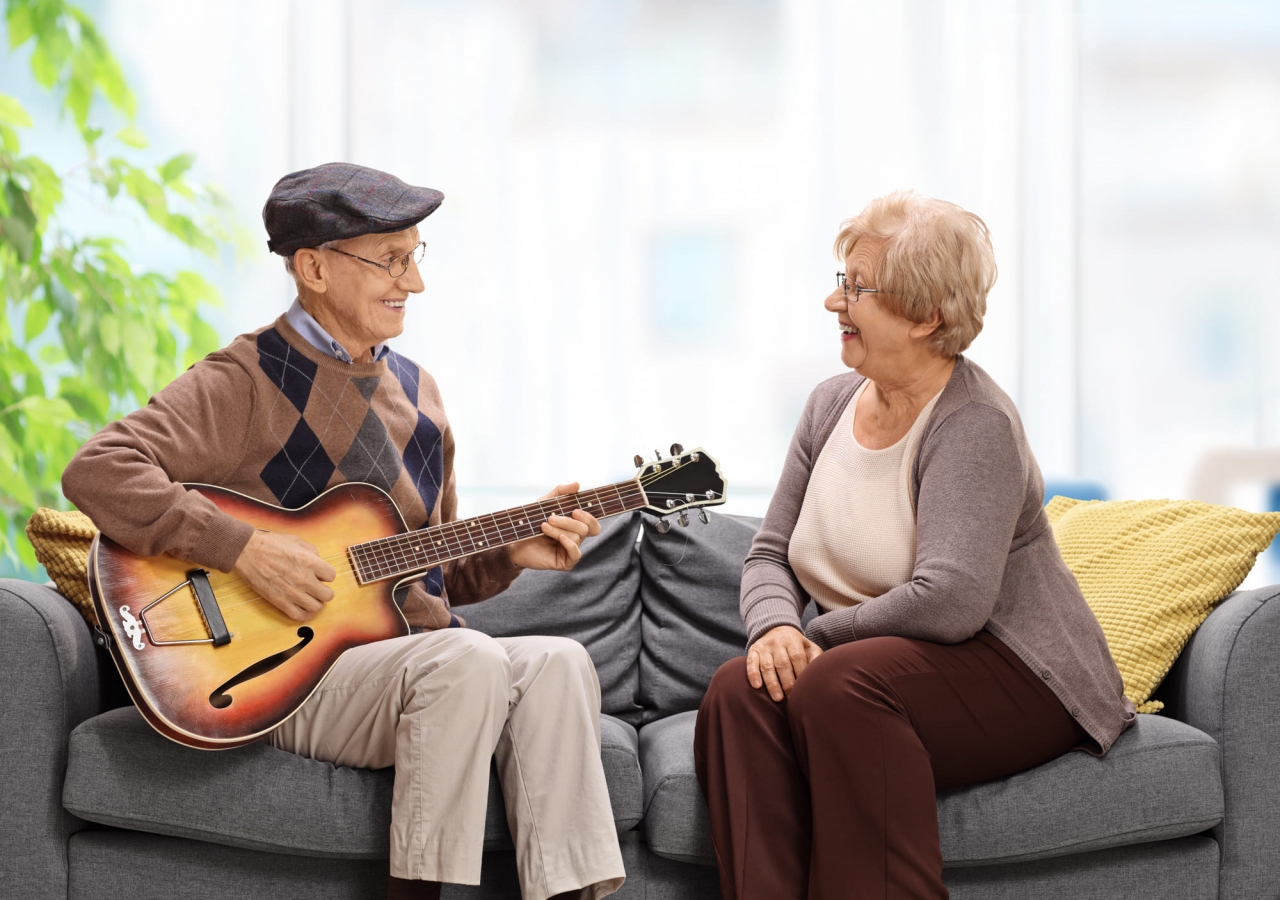Music therapy is usually defined as the “technique of verbal and non-verbal communication that uses music and sounds for therapeutic purposes”. It assumes itself as a self-expressive therapy with a strong focus on cognitive functions and emotional states, providing seniors with contact with their creativity, potential, memories and life stories, restoring them part of a feeling of power and usefulness.
"We are musical creatures in an innate way from the depths of our nature", in the words of Stefan Koelsch, psychologist and neuroscientist. “Music is a succession of acoustic signals that our ears collect and send to the brain”, according to the same expert. There, they are decoded and given meaning. There is a transformation of a sound into an understandable "something".
The first reports regarding the use of music therapy are referenced in the Papyrus of Lahun, collection of texts that narrate topics of life of the ordinary citizen of Ancient Egypt.
In Ancient Greece, there are also records that show the social and therapeutic importance of music.
However, the potential of music was recognized in the 9th century, during the Islamic Golden Age, a period in which it had wide therapeutic use.
In relation to modern music therapy, the story has its roots in military hospitals of the 2nd World War, as a way to help the recovery of soldiers who returned from battle, being especially focused on patients with mental and emotional disorders.
Through the songs of a lifetime, it is possible to recall moments that marked a certain phase of life.
“Active Aging” is one of the goals of the World Health Organization (WHO), which aims to provide a more dignified aging, with opportunities, health care and safety, making this stage of life an experience with more fulfilment and well-being.
T, music therapy, an expressive therapy, helps to promote a healthier, more productive life with general well-being, contributing to the “Active Aging”.
It also values the seniors’ experiences, as well as their self-esteem, strengthening their own or group identity.
Seniors with dementia can and should enjoy the benefits of music therapy. This practice proves to be quite effective as a complement to other therapies, such as physiotherapy and speech therapy.
In addition to stimulating good mood and helping to reduce anxiety and stress, music therapy:
- Improves body expression;
- Stimulates motor coordination;
- Controls blood pressure;
- Assists in mental illness;
- Improves behavioural disorders;
- Helps to endure chronic pain.







